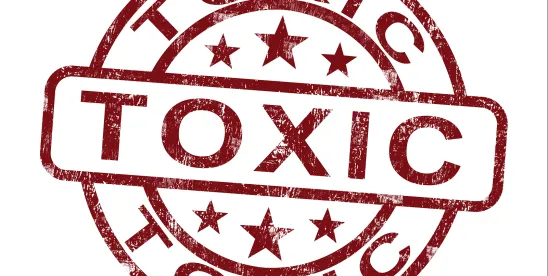California’s Proposition 65 requires businesses to provide warnings to California consumers about significant exposures to chemicals it has determined to cause cancer, birth defects, or other reproductive harm when exposure to the chemicals exceeds an established safe harbor level in a consumer product.
On December 29, 2023, bisphenol S (BPS) was added to the California Proposition 65 list as a female reproductive toxicant, following a 9-to-0 vote of the Developmental and Reproductive Toxicant Identification Committee (DARTIC) of the state’s Office of Environmental Health Hazard Assessment (OEHHA), the agency tasked with implementing Proposition 65. Therefore, the warning requirement for products presenting a “significant exposure” to BPS is about to go into effect one year later, on December 29, 2024. Since OEHHA has not yet established a safe harbor level for BPS, almost any detectable level of BPS in a product may be considered as presenting a “significant exposure.”
BPS has frequently been used as a substitute for bisphenol A (BPA), another Proposition 65-listed chemical, the use of which is now severely restricted in many products and jurisdictions. However, with the Proposition 65 listing, the safety of BPS has now been brought into question. BPS is often detected in leather and synthetic textiles such as nylon and spandex. In many situations, it may have been intentionally added and may not simply be inadvertently present as a contaminant (e.g., from recycled materials).
In a 9-to-0 vote held at a meeting on December 12, DARTIC concluded that BPS also causes male reproductive toxicity. Therefore, it is expected that OEHHA will add male reproductive toxicity to the Proposition 65 listing of BPS.
Takeaways
- Companies manufacturing, selling, or distributing consumer goods containing BPS for sale in California as of December 29, 2024, must comply with Proposition 65.
- With the impending warning requirement deadline for BPS and the expected new male reproductive toxicity listing, companies selling such consumer goods into California should anticipate that enforcers will have a heightened focus on pursuing potential violations for consumer products containing BPS.
- Given these practical realities, businesses can best mitigate the risk of enforcement actions for alleged BPS in consumer products by conducting regular product testing, having robust discussions with third parties in the supply chain regarding the chemical composition of components and end products that will be sold to California consumers, and using Proposition 65 certifications and indemnity provisions with upstream suppliers.




 />i
/>i
